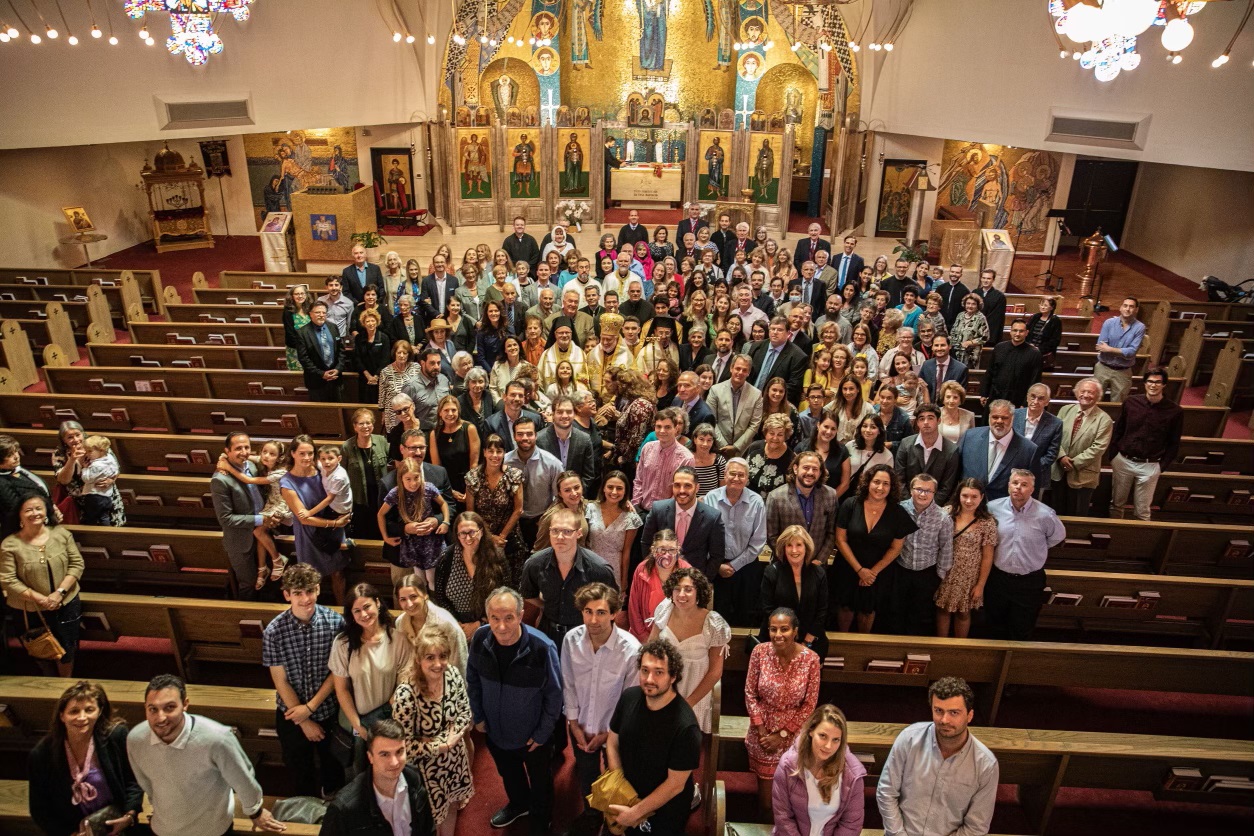Perhaps it is the very human need to affiliate that has given groups such a prominent place in church activities. Yet it is not the nature of the group activities that distinguish a Godly group from a secular one but the nature of the relationships within that group that provide an opportunity for the Kingdom of God to be present in even the most common group activity. Even a board meeting for dividing up the church cleaning duties can exhibit the presence of the Kingdom while a group gathered to pray might not. What makes our gatherings something exceptional to God? God loves “koinonea” built on joy. Joy means we are glad to be together.
Groups in churches are used for:
- Transferring information
- Prayer and worship
- Ministering with our gifts
- Bearing each other’s burdens
- Evangelizing
- Accomplishing tasks
- Distributing power
- Fellowshipping and socializing
- Edifying and forming character
- Discipling and developing maturity
Building Joy
Joy was at the heart of Jesus teaching. Joy was even the reason for Jesus’ teaching John 15:11 and 17:13 (you can fill in the verses Chris) Joy was the character of life for worship and fellowship in the early church Acts 13:52 and 2 John 1:12. Joy characterizes the disciples of Jesus. They are known because they are glad to be together. Even their prayer was to lead to joy John 16:24.
For Paul the very nature of the Kingdom of God was joy Romans 14:17. For the kingdom of God is not food and drink but righteousness and peace and joy in the holy Spirit;
Building Character and Endurance
Christians leave church fellowships in great numbers when there are conflicts. Members leave when there is suffering or when they are drawn back into the world. Much church growth has resulted in a horizontal growth in numbers that often lack a growing depth of endurance and character.
Character and endurance are built in relationships of loyalty and love. Character is not built by ideas or doctrine but by relationships where doctrine has become life and practice. For a good man someone might die not for a good concept. Romans 5:7. We endure suffering because we love the Lord not because we have found the right beliefs. The character that endures even under suffering is formed in a family not a group. Families build strength through joy for joy that comes from God is the source of our strength Nehemiah 8:10.
Over the time w spend in fellowship we move from being groups of strangers to groups of co-workers to members of one body and finally members of one family. Joy is what transforms our groups into families. Joy is what builds a strong family. No wonder Jesus did so much for joy. Hebrews 12:2 tells us that Christ endured the cross for the joy he expected on the other side. What was that joy but His expectation to be with us for eternity.
Moving From Group to Family
It is clearly the case that the spiritual family of God is one we enter through spiritual adoption and not through our natural births. Jesus made this point clearly to Nicodemus when he said, “You must be born again.” Now, you might think that in Christianity, a religion that sees all its members as one family, a type of family joy would flourish. This is not the case. Regrettably, Christians often prove the most difficult to persuade of a real dimension to a family they cannot see. In spite of Jesus’ warning in Matthew 10:37-39 most of his followers find their natural families easier to love than their spiritual family.
Most Christians are aware that God frequently refers to followers in family terms. Scripture mentions quite a few spiritual family relationships. One of Jesus’ last acts on the cross was to perform an adoption ceremony between his mother and her new adult son, John. John became a replacement son for Mary before her first son died. Thus Jesus highlighted the theme of spiritual family in a prominent way for his followers even while he hung on the cross.
Spiritual adoption is frequently mentioned in the Epistles. The apostle Paul develops a theology of adoption in Romans 8:15, 23; 9:4; Galatians 4:5; and Ephesians 1:5. In these passages he highlights the believers’ new relationship with God. Even if they were once sinners or even non-Jews, they are now adopted children of God. Still, it is his personal practice of adopting other men that illustrates his belief in the family of God on earth most clearly. If God adopted us, Paul was ready to adopt others as well. Adoption was an expected experience for Paul and other early church leaders.
One example of adoption can be found in the letter Paul wrote on behalf of Onesimus, whom he called “my son… who became my son while I was in chains” (Philemon 10). Paul clearly was pleased to have this son, and Onesimus was not his only son. In writing to Titus, Paul greets him as “Titus, my true son in our common faith” (Titus 1:4). In the same way he calls Timothy both “my true son in the faith” (1 Timothy 1:2) and his “dear son” (2 Timothy 1:2). Paul said of Timothy “as a son with his father he has served with me in the work of the gospel” (Philippians 2:22).
Paul is not alone in this practice. His “dear brother” the apostle Peter refers to Mark as his “son” in 1 Peter 5:13. They traveled together and Mark interpreted for the old fisherman. Mark probably wrote his gospel as a traveling companion and catechist for Peter–at least such was the traditional belief in the early church.
Adoption and mentoring are intricately combined in these biblical models. Spiritual family provides enduring relationships for growing both an individual and group identity to those who find themselves in grown bodies but immature inside. Elders are parents for those whose natural families did not help them grow up. It is in the context of a spiritual
family that the sufferings and trials of life are best lived out. The community provides a continuity of life and the wealth of resources needed to help each individual grow; each family form and each generation build on the last.
Many of our churches use “Brother” and “Sister” for greetings but without joy we genuinely feel for family. Without the genuine gladness of being together and sharing each other’s sufferings, these greetings mean very little. It is only as we grow to love each other as a true family that we will form the character needed to endure church conflicts or persecution.
We are Jesus’ gifts to each other and just as Paul was willing to continue his sufferings in the body for his beloved church family (Philippians 1:24) because they were his joy. (1 Thessalonians 2:19-20) so we must be for each other.
Cultivating a life of joy as a spiritual family
Romans 12:9-21 describes the life of a “living sacrifice,” a life no longer conformed to the patterns of this world. By this we must understand that the life of a spiritual family is like nothing else you will see in the lives around you in any human culture. Not only is this spiritual family life different but it also requires both God’s gifts and our intense efforts for its existence. (verse 11)
In Romans 12:15 we find the two main ways in which this family become a reality unlike anything you have seen in the world, “Be joyful with the joyful and mourn with the mourners.” Everything else in this passage flows from this principle. Instead of acting like a living sacrifice would in a spiritual family context, we often cheer up the mournful and hush the joyful just as we anyone else in the world would do. It takes strenuous effort to share the cares and weep with the sorrows and endure grief rather than give our answers and go on our way. A living sacrifice shares the pain in others lives so that no one is alone in their sufferings. (verse 8) Very strong bonds of love will grow between those who share a deep sorrow and really weep together.
Equally difficult is sharing the joy of others when our own fortunes may not seem so good. Have they found a beautiful wife while we are alone or worse yet in a miserable marriage? We rejoice with them. Have they done well when we have not? Again we share their joy. We smile and rejoice to see them and build “warm mutual affection.” (verses 9-10.)
There are indeed two ways that we form bonds and build the joy of being together. We rejoice in each other’s joys and eagerly share each other’s sorrows by weeping together. How hard we must struggle to fulfill so simple a text. From this beginning flow the hospitality, peace and even overcoming evil with good. (verse 14, 21) No matter how our spiritual family may treat us at times, we return good that we may have joy in our fellowship once again. Surely there is no other family like this on earth. Now, let your
spiritual family see some joy on your face and hear the warmth in your voice the next time you meet.




